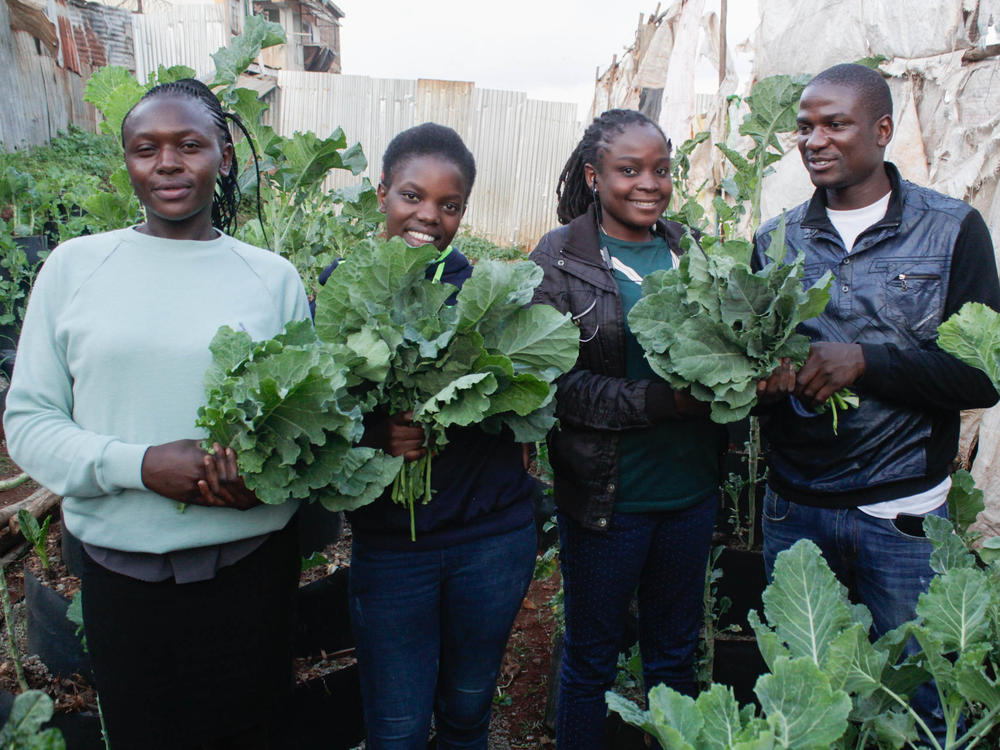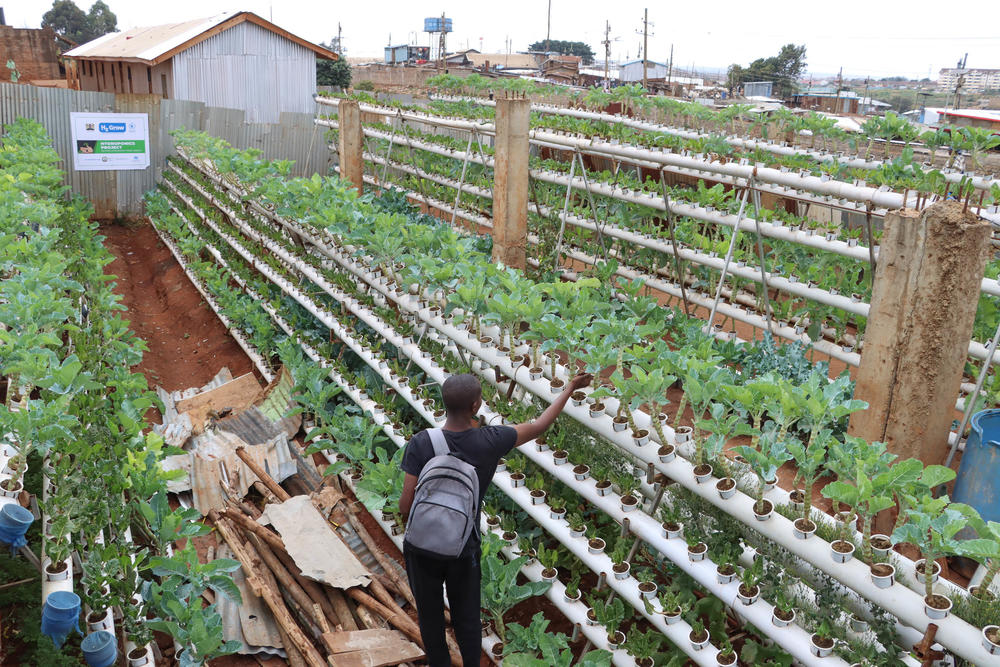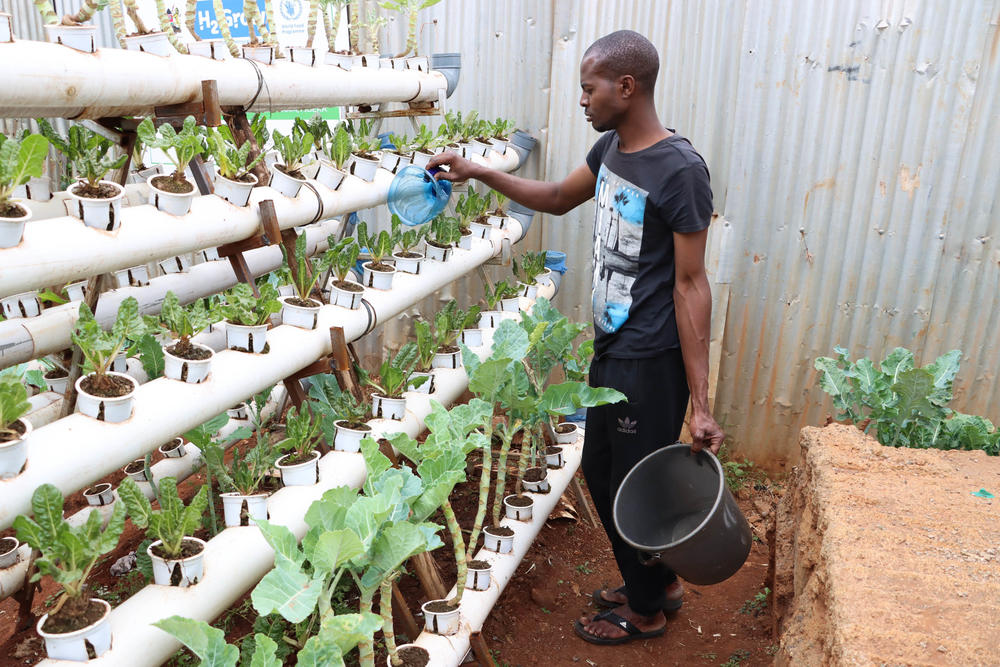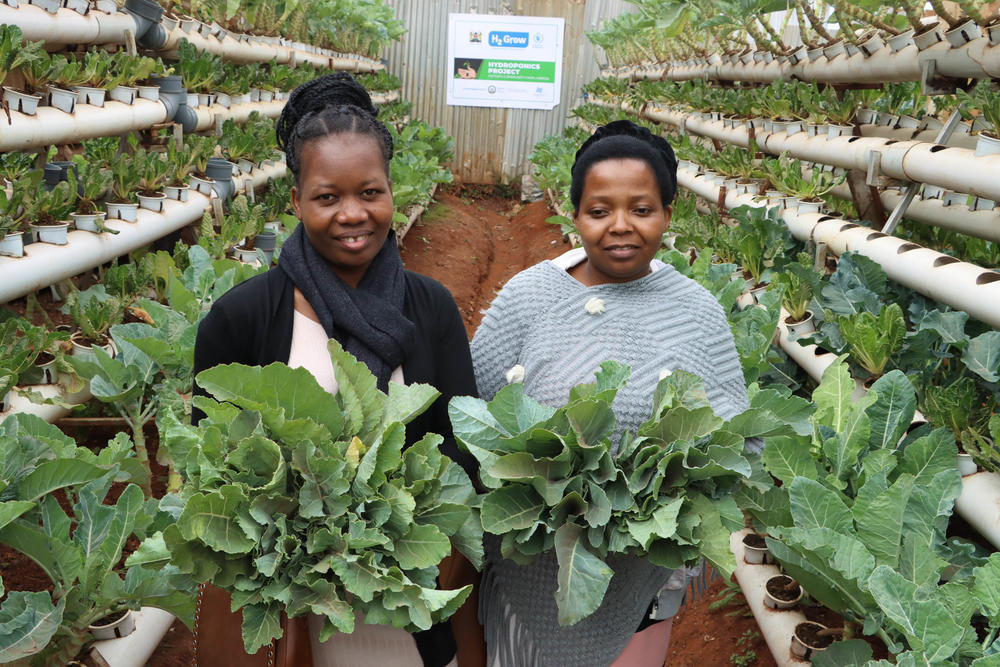Section Branding
Header Content
Whatever happened to the Kenyan farmer who turned a dump into a garden of giveaways?
Primary Content
In July 2020 NPR highlighted the work of Victor Edalia of Kenya, who turned a trash dump into an urban farm in Kibera, one of the world's largest slums, on the outskirts of Nairobi. When the 32-year-old part-time driver signed a deal with a local chief for a quarter acre of land to farm, he had planned to sell vegetables to hotels. But during the pandemic, he began supplying free produce to struggling families. We returned to the former dump to find out what's cropping up for the new farmer.
Once you open the brown rusted padlock, the inside of Edalia's former garbage dump now has the feel of a commercial farm. Rows of neatly organized greens sprout from hundreds of plastic cups on stacked plastic pipes. The farm has embraced a hydroponic system, a water-based method. Fresh collard greens, spinach, peppers and other vegetables are all mounted above the ground, putting on a show.
"I am still alive and kicking as you can see," Edalia says.
Since we last visited two years ago Edalia has made some strategic alliances. In October 2021 an American nonprofit group called the Human Needs Project, reached out to Edalia when they were surveying small-scale urban farmers within Kibera.
They were impressed by what he had done so far, so the group arranged for Edalia and his team members to do a two-week training with the East African company Hydroponics Africa. They learned how to preserve vegetables after harvest and, crucially, how to increase the farm's yield in a small urban space.
Before he revamped his farm Edalia supplied vegetables to about 20 people a month. Now he can supply about 250 families. With all this new produce to distribute, the American charity provided financial support to help him introduce a voucher system. Community mobilizers from the Human Needs Project identified vegetable vendors at strategic spots in Kibera, who collect vegetables from Edalia's farm and hand them out to eligible families who've obtained a voucher from the charity.
The World Food Programme and the Nairobi City County are official partners with the farm, too — plaques with their names are nailed to the corrugated metal walls.
There's even enough extra produce to sell kale, spinach, tomatoes, and lettuce to primary schools. The new income means Edalia and his team are finally earning money from the vegetables.
But the informal nature of veggie distribution that NPR saw in 2020 hasn't gone away either. If needy families don't want to use the voucher system they can still casually drop by the farm as they did before. "Oh yes," Edalia says, "That approach never died."
One of the new veggie beneficiaries is Soila Amboi, a 33-year-old clothes seller and a mother of three. She says the regular supply of the vegetables has become a relief.
"You know times are tough, my friend, and having someone like Victor here, we call him 'olum' meaning the blessed one," she says in the Luo language, "He is truly blessing us indeed."
Thomas Bwire is a digital and radio journalist from Kibera, Kenya.
Copyright 2022 NPR. To see more, visit https://www.npr.org.




